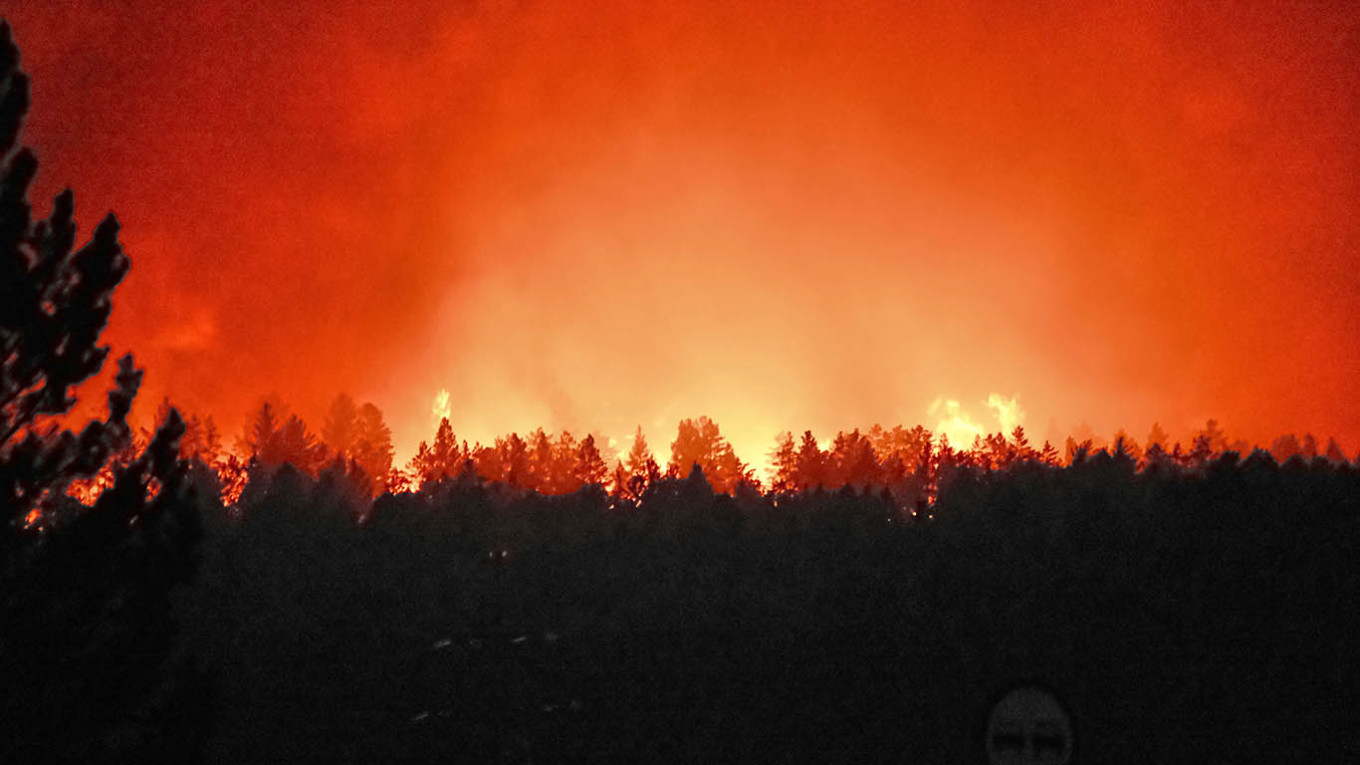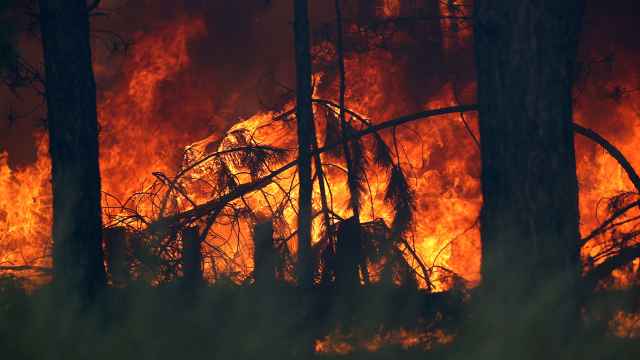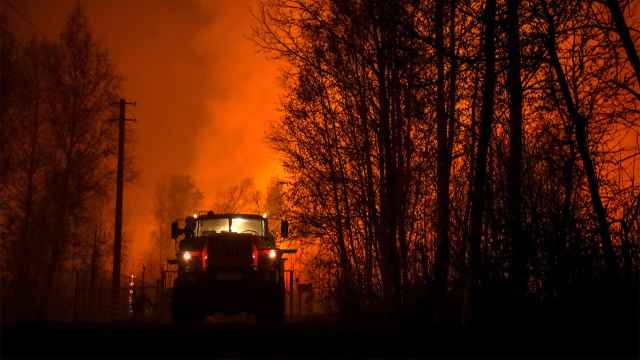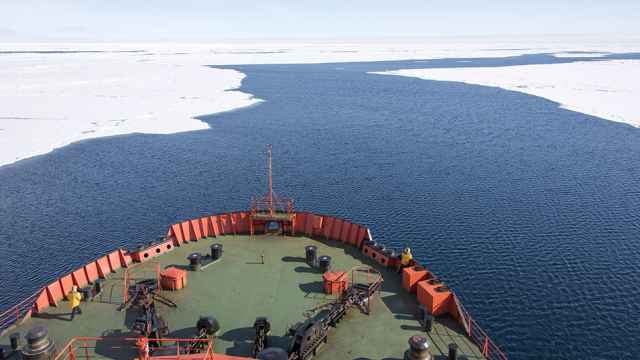Russia’s wildfire season has been less intense this year, with blazes so far burning significantly less land than in 2024, though experts warn that the apparent improvement could foster dangerous complacency about the country’s long-term preparedness.
From January through August, authorities registered more than 6,500 fires across 4.5 million hectares (11.3 million acres), or nearly one-third less than during the same period last year.
That figure is also within the Russian government’s target of 4.68 million hectares of burned forest for all of 2025, according to the environmental news website Kedr.
Experts told Kedr that the decline in wildfire damage this year was due to a combination of factors, including heavier rainfall, an unusually cool summer in Siberia and a drop in the traditional springtime burning of dry grass.
“The authorities will most likely mistakenly perceive the relatively calm wildfire season as their victory, and as evidence that the wildfire protection system is finally working well,” an anonymous forestry specialist was quoted as saying by the news website.
“But in reality, the situation is getting worse: the climate is changing, and the mess in forestry is growing. Skilled workers are leaving, equipment and machinery are wearing out and people are increasingly forced to engage in administrative nonsense,” the specialist added.
Grigory Kuksin, a longtime forestry expert at the Landscape Fire Prevention Center, told Kedr that Russia’s wildfire season has in recent years stretched further into the fall as hotter, drier weather lingers.
“The forecast for the end of the season is still alarming. The end of the season is still far away,” Kuksin was quoted as saying. “And in winter, we’ll have to deal with ‘zombie fires,’ smoldering peat that survives underground through the cold season, even in northern regions.”
Russia recorded its worst wildfire season in 2021, when nearly 19 million hectares were destroyed overall.
A Message from The Moscow Times:
Dear readers,
We are facing unprecedented challenges. Russia's Prosecutor General's Office has designated The Moscow Times as an "undesirable" organization, criminalizing our work and putting our staff at risk of prosecution. This follows our earlier unjust labeling as a "foreign agent."
These actions are direct attempts to silence independent journalism in Russia. The authorities claim our work "discredits the decisions of the Russian leadership." We see things differently: we strive to provide accurate, unbiased reporting on Russia.
We, the journalists of The Moscow Times, refuse to be silenced. But to continue our work, we need your help.
Your support, no matter how small, makes a world of difference. If you can, please support us monthly starting from just $2. It's quick to set up, and every contribution makes a significant impact.
By supporting The Moscow Times, you're defending open, independent journalism in the face of repression. Thank you for standing with us.
Remind me later.






